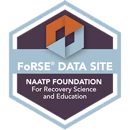November 13, 2023
From Isolation to Connection

The smell of fresh brewed coffee permeates the air. The sound of children laughing filters through the hallway. Two smiling faces light up as you turn the corner, syrup staining the otherwise white teeth on display. Strong yet gentle arms wrap themselves around your waist. ‘Home.’ A single word that brings with it a cascade of images, smells, and feelings. Moments that just a few short years ago, seemed desperately out of reach.
This is the other side of recovery. But the journey to sobriety is never easy.
Alcohol Use Disorder (AUD) is a disease. One that, according to the Diagnostic and Statistical Manual of Mental Disorders (DSM5), is defined by an inability to control consumption. This loss of control affects every aspect of daily life. The all-consuming need to drink can strain relationships, deplete financial resources, and ruin professional careers.
Suddenly home becomes a word devoid of meaning.
Alone. Misunderstood. Lost. These words are more familiar to those affected by Alcohol Use Disorder. Their disease ravages their mind, narrowing their focus to one thing, drinking. As their desire to consume begins to push out all other thoughts, it’s as if every other part of their life begins to crumble away. But, to them, alcohol isn’t the disease. It’s the medicine.
Everyday work stress. Relational issues. Struggles with family. To the average person, these are issues that can be handled with a clear head, and careful thought. To someone suffering from Alcohol Use Disorder, these anxieties trigger their need to drink. Real life begins to be defined by struggle. Sobriety begins to feel unbearable.
So, despite a desire for a better life, this paradoxical insight is the driving force behind the cycle of relapses typical of those struggling through recovery.
In most cases it takes a ‘moment of clarity’ for those affected by AUD to accept that they have a problem. A moment in which they realize that alcohol is not the life raft helping them endure the storm of life, but the choppy waters threatening to sink them, and recovery, the guiding light showing them the way to shore. To home.
Dilworth Center has been providing treatment for alcoholism, drug addiction, and associated mental health conditions for over 30 years. We offer a host of intensive outpatient recovery programs. Our services include programs for adolescents, young adults, adults, families, and professionals. Additionally, we offer post-treatment relapse prevention to give our patients the tools and community to navigate recovery.
Our initial assessment guarantees that we tailor recovery programs to the needs of every individual, and our relapse prevention program gives patients the accountability to sustain long-term, robust recovery.
We provide the tools for those suffering from Alcohol Use Disorder to get sober. And stay sober. Dilworth Center alumni maintain an industry-leading 80% sobriety rate after two years, because we don’t just give our patients the ability to survive without alcohol. We give them the resources to thrive without alcohol.
Find help for someone suffering from Alcohol Use Disorder today. Fill out the form below to take the first step in the recovery journey.






